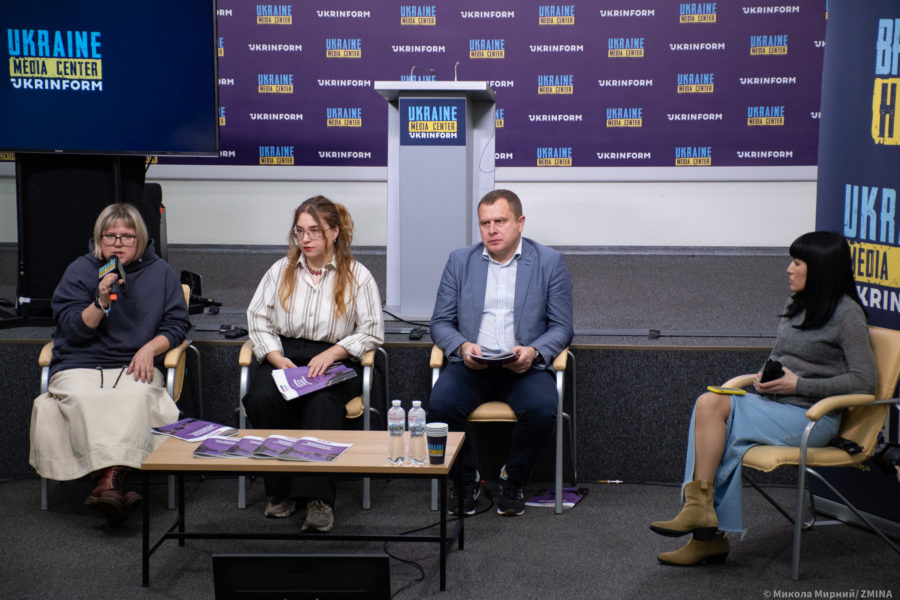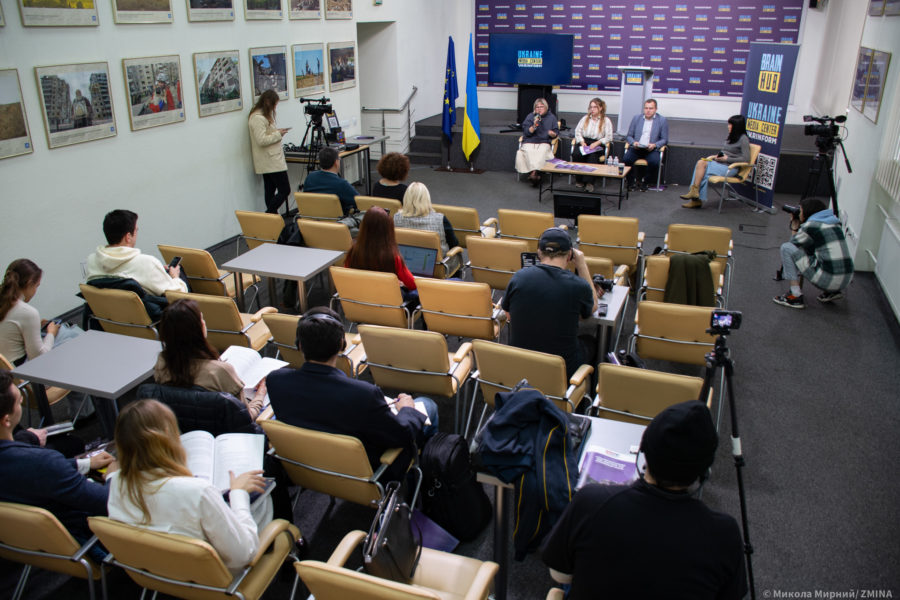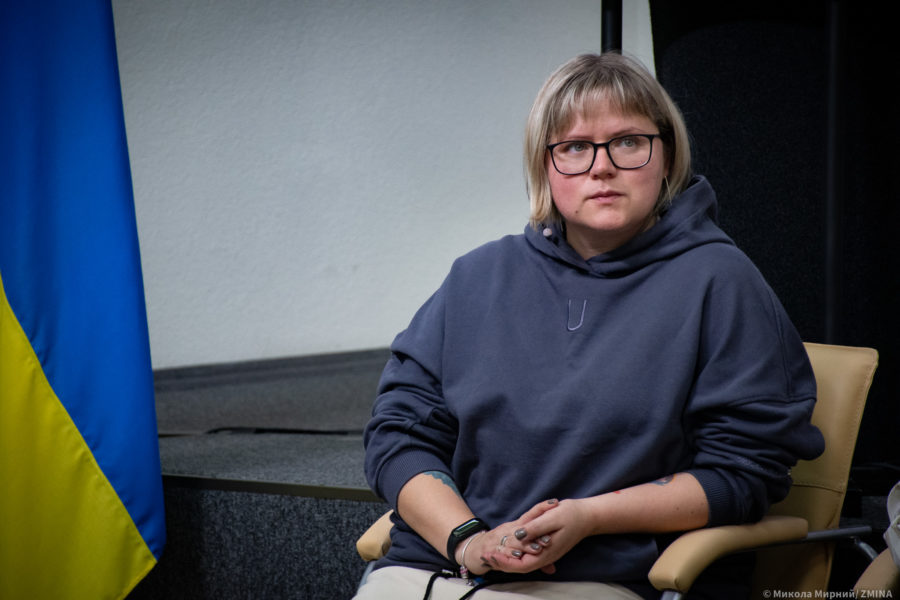Ukrainian legislation on collaborationism imperfect as law enforcement officers say themselves: report by human rights defenders
Ukraine’s applicable legislation on responsibility for collaboration with the enemy threatens many Ukrainians under occupation as it does not have clear wording by which collaborationism can be defined. In addition, Ukrainian law enforcement officers and judges also consider the legislation in this area to be imperfect.

This became known during the presentation of an analytical report on how Ukraine punishes for collaborationism presented by human rights defenders of the Human Rights Centre ZMINA on October 30.
According to ZMINA’s advocacy director Alena Lunova, the concepts of “collaborationism” (Article 111-1 of the Criminal Code of Ukraine) and “abetting the aggressor state” (Article 111-2 of the CCU) appeared in Ukrainian legislation after the full-scale war started. Thus, the state tried to cover all types of possible collaboration of the population with the occupiers and establish the limits of permitted and prohibited activities in the occupied territories.
“Although these articles have been in effect only for a year and a half, at least 12 draft laws have been submitted to the Verkhovna Rada proposing to amend them. But most of these draft laws do not take into account the practical application and difficulties faced by law enforcement officers and judges. We also see that MPs want to step up punishment – increase prison terms and fines – instead of making a comprehensive review of approaches to prosecution. But, in our opinion, such an approach will not help achieve justice in punishment for collaborationism,” Lunova said.
Human rights defenders examined 691 judgments delivered under various parts of Article 111-1 of the CCU and seven judgments under Article 111-2 of the CCU in the Unified State Register of Court Decisions. ZMINA’s legal analyst Onysiia Syniuk says that the imperfection of the legislation is obvious in practice:
“The vague wording results in a broad interpretation of these articles and also makes it difficult to distinguish between all the articles that concern the collaboration with the aggressor state. This creates problems both for the judicial and law enforcement system and people under occupation.”

Ukrainians who live in the occupied territories do not have a clear understanding of what actions are allowed and what they will have to bear responsibility for. Such misunderstanding intimidates the population under occupation, say human rights defenders. There is another problem: disproportionality between violation and punishment. Difficulty in differentiating between Articles 111-1 and 111-2 and vague wording also lead to this.
For example, a man who voluntarily slaughtered two rams and personally handed over the carcasses to the occupiers and “thereby ensured their occupation activities in the territory of Boromlia united territorial community” was sentenced to one year and three months in prison with a ban to hold positions in government agencies and local self-government bodies for 10 years with confiscation of property.
At the same time, a person who “provided material resources at the disposal of servicemen of the occupation forces of the Russian Federation free of charge”, namely, cooked food, washed clothes, and also handed over rams’ carcasses for free to other Russian military personnel, was punished with UAH 17,850 fine with the same deprivation of the right to hold elected positions and with confiscation of property.
 Alena Lunova
Alena LunovaUkrainian law enforcement officers, judges and lawyers also point to all the mentioned problems. On behalf of ZMINA, the Kharkiv Institute for Social Research (KISR) conducted 20 in-depth interviews with representatives of the National Police, the State Bureau of Investigation, the Security Service of Ukraine, as well as with judges and lawyers who work with collaborationism cases, in July-August 2023.
Andriy Chernousov, a leading expert at KISR, said that sociologists had faced a high level of refusals to communicate on this topic when searching for respondents for interviews:
“Professionals feel the weakness of ‘evidence’ that forms the basis of indictments and then judgments, so few people agree to speak and are very careful in their conclusions. But all of them share the opinion that the existing constructions of the articles of the Criminal Code of Ukraine, which provide for prosecution for collaborationism, are imperfect and require significant specification.”
Moreover, law enforcement officers, judges and lawyers say that the judiciary is overburdened. And the lack of sufficient resources results, in particular, in a lower quality of the investigation.
“The investigators are overburdened and, therefore, do not have time to carry out all the necessary investigative actions. They try to limit themselves to establishing the identity and the minimum evidence base to submit a case to court and not to examine all the evidence that can be collected in more detail and more thoroughly,” an employee of the prosecutor’s office said in an interview.
 Andriy Chernousov
Andriy ChernousovChernousov adds that the elements of crime should provide for clear types of activities that can be called criminal. Adding an accurate list of types of collaborationism to the Criminal Code of Ukraine will allow to punish really guilty persons and not to persecute all those who stayed under the occupation and had to survive under the occupiers’ control.
The analytical research on how Ukraine punishes for collaborationism is available at the link.
The event is held with the support of the European Union and the International Renaissance Foundation within the framework of the joint initiative “European Renaissance of Ukraine”. The event represents the position of the authors and does not necessarily reflect the position of the European Union or the International Renaissance Foundation
Cover photo is illustrative
If you have found a spelling error, please, notify us by selecting that text and pressing Ctrl+Enter.















